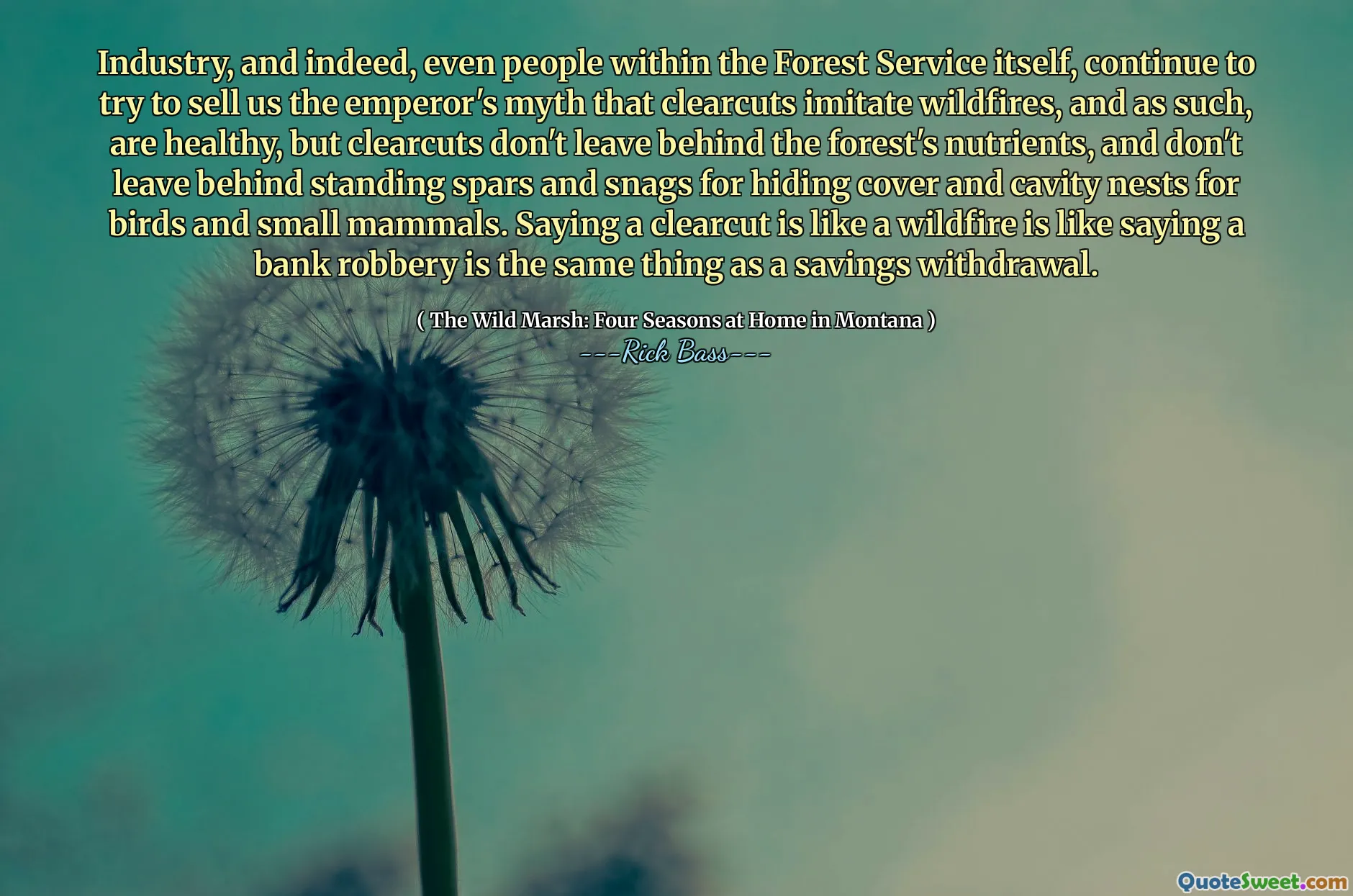
Industry, and indeed, even people within the Forest Service itself, continue to try to sell us the emperor's myth that clearcuts imitate wildfires, and as such, are healthy, but clearcuts don't leave behind the forest's nutrients, and don't leave behind standing spars and snags for hiding cover and cavity nests for birds and small mammals. Saying a clearcut is like a wildfire is like saying a bank robbery is the same thing as a savings withdrawal.
This quote challenges the narrative often propagated by industry and some within the Forest Service that clearcutting mimics the natural process of wildfires and thus promotes forest health. It uses a powerful analogy to separate natural disturbance from human intervention — equating clearcutting to a bank robbery, and wildfires to a savings withdrawal. The implication is that wildfires, destructive as they may be, are an intrinsic and replenishing part of forest ecosystems, contributing to nutrient cycling, habitat diversity, and regeneration. Clearcuts, on the other hand, remove vital components like nutrients, standing trees, and snags that provide critical cover and nesting sites for wildlife. This differentiation underscores a deeper ecological truth — natural processes have evolved complexity and balance that human interventions often fail to replicate. The critique directed at both industry and certain Forest Service representatives also hints at the tension between economic interests and environmental stewardship. The metaphor reminds readers to critically evaluate claims that frame aggressive logging practices as environmentally benign or beneficial. It pushes for a more nuanced understanding of forest ecology, emphasizing that the apparent similarity between wildfire and clearcutting is superficial and misleading. Taken from Rick Bass's "The Wild Marsh: Four Seasons at Home in Montana," this quote reflects Bass's keen environmental consciousness and advocacy for wilderness integrity. It invites readers to reconsider how we define 'healthy' forest management and to acknowledge the irreplaceable roles of natural disturbances in maintaining forest ecosystems. The words call for integrity in environmental discourse and caution against oversimplifications that can mask harm under the guise of ecological similarity.






